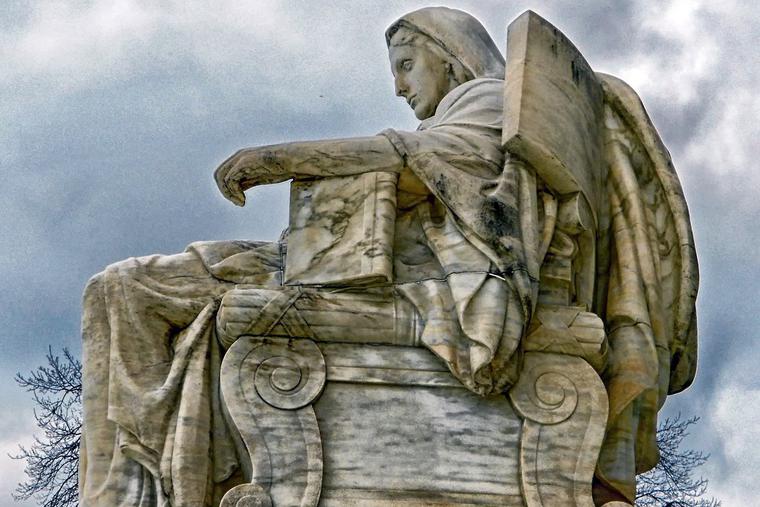Roe v. Wade Was Never A ‘Law’ In The First Place
The Supreme Court is not a legislative body — while it can make judicial rulings, it cannot make law.

“Roe v. Wade is the law of the land.”
This phrase has been uttered millions of times since Jan. 22, 1973. Whether they want Roe upheld or struck down, Americans largely agree with that assertion. Problem is, the statement is 100% wrong. Roe was not law in 1973. It is not law now.
Judge Harry Blackmun’s majority decision in Roe v. Wade was a court opinion, not a law.
Blackmun wanted it to become law. He professed it should be law. He wrote the decision as if it were a law. As Justice Samuel Alito writes in his recently leaked decision, “The scheme Roe produced looked like legislation, and the Court provided the sort of explanation that might be expected from a legislative body.”
Alito continues:
The weaknesses in Roe’s reasoning are well-known. Without any grounding in the constitutional text, history, or precedent, it imposed on the entire country a detailed set of rules much like those that one might expect to find in a statute or regulation.
Problem is, and the problem remains, the Supreme Court does not possess the constitutional authority to make law.
The Supreme Court is a judicial body, not a legislative one. The court can make judicial rulings; it cannot make law. That distinction is fundamental to our constitutional republic. As Alexander Hamilton wrote in the Federalist, “I agree, that ‘there is no liberty, if the power of judging be not separated from the legislative and executive powers.’”
In America, bills become laws after being passed by Congress (the legislative branch), and then signed into law by the President (the executive branch). The president can veto a bill, but (with enough votes) that veto can be overridden and passed by the legislative branch anyway. Without exception, the Supreme Court is the one branch of government that has no power to be involved in the operation of law-making. That is true whether it is abortion law, tort law, property law, or any other type of legislation.
To be sure, the judges should apply the law, but that is a far different thing from making law. As Chief Justice John Roberts put it, “Judges and Justices are servants of the law, not the other way around. Judges are like umpires. Umpires don’t make the rules; they apply them.” Also like umpires, the Court reserves the power to overturn their own bad calls. Alito’s overturning of Roe is far from unique; it is one overturn among many.
The power to make law — along with powers such as declaring war, negotiating treaties and issuing currency — is reserved to the other branches. The Supreme Court has no more constitutional authority to draw up abortion law than it has the power to declare war on Canada, negotiate treaties with the island of Curaçao, or replace the American dollar with cryptocurrency. These are powers reserved to other branches.
Blackmun had no more power to make law than any other non-elected citizen in America possesses that power. Lord Acton observed that “power tends to corrupt; absolute power corrupts absolutely.” If one claims to possess absolute power within a constitutional republic, that serves as evidence of corruption. At minimum, it fails to recognize the separation of powers deemed essential to operating a constitutional form of government.
Of course, some political progressives fundamentally reject that notion — that whole “separation of powers” thing. They seem to believe that the Supreme Court should have not only judicial but also absolute federal executive and legislative powers.
Further — in rejecting Alito’s argument that elected representatives should have the power to make law regarding abortion — they essentially argue that the Supreme Court should maintain absolute power over all 50 state governors, all state legislatures, and all the voters in all those states. While they clamor for democracy on CNN and MSNBC, progressives simultaneously advance the idea that as few as five unelected individuals (the numeric necessity for a Court majority) should make life-and-death decisions on behalf of 330 million people.
Could there exist a process more undemocratic than that?
Alito’s decision contends that power should be returned to the states, which is to say: the power should be returned to the voters in the states. Alito’s decision will allow more democratic process — not less. That is not an opinion; that is a statement of objective mathematical fact.
Justice Alito’s decision does not make abortion illegal, and anyone who claims otherwise is either intentionally deceitful or simply ignorant. Whatever one thinks about abortion, there is no doubt that Alito’s overturn of Roe is one the most purely democratic decisions in American history.
- Keywords:
- roe v. wade
- supreme court














